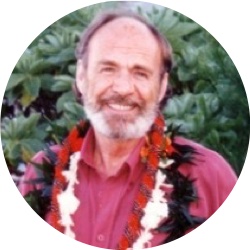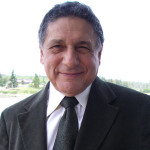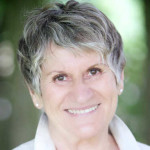
Additional Resources
Page 56: Global Study
For Math Students, Self-Esteem Might Not Equal High Scores
Washington Post Staff Writer
It is difficult to get through a day in an American school without hearing maxims such as these: “To succeed, you must believe in yourself,” and “To teach, you must relate the subject to the lives of students.”
But the Brookings Institution is reporting today that countries such as the United States that embrace self-esteem, joy and real-world relevance in learning mathematics are lagging behind others that don’t promote all that self-regard.
Consider Korea and Japan.
According to the Washington think tank’s annual Brown Center report on education, 6 percent of Korean eighth-graders surveyed expressed confidence in their math skills, compared with 39 percent of U.S. eighth-graders. But a respected international math assessment showed Koreans scoring far ahead of their peers in the United States, raising questions about the importance of self-esteem.
In Japan, the report found, 14 percent of math teachers surveyed said they aim to connect lessons to students’ lives, compared with 66 percent of U.S. math teachers. Yet the U.S. scores in eighth-grade math trail those of the Japanese, raising similar questions about the importance of practical relevance.
Tom Loveless, the report’s author, said that the findings do not mean that student happiness causes low achievement. But he wrote that his analysis of the international math assessment, the 2003 Trends in International Mathematics and Science Study, shows that U.S. schools should not be too quick to assume that happiness is what matters in the classroom.
“It is interesting that people grasp this notion in other areas of self-improvement — eating healthy foods, getting exercise, saving for retirement — but when it comes to education, for some reason, the limitations of happiness are forgotten,” Loveless wrote.
Several countries in Asia and some in Europe tend to beat the United States in math scores, even though their students show less satisfaction with performance and less love of math, and even though the lessons they receive are less “relevant,” the report found.
The report is likely to stoke a debate over teaching math and other subjects that has divided the United States for at least a century. Progressives say that what students choose to study and how they feel about education should matter as much, or more, in the classroom than test results; traditionalists say that gain requires some pain and that tests matter.
Alfie Kohn, a progressive author and lecturer, questioned the findings. “Let me get this straight,” Kohn said. “Kids who get higher scores on standardized tests are unhappy and self-doubting, so that means we should question the importance of happiness and self-confidence, rather than the importance of these tests?”
Gerald W. Bracey, an educational psychologist and columnist for the education journal Phi Delta Kappan, said the report overlooked countervailing trends in Japan, Singapore and other countries that do better than the United States on eighth-grade math tests. Officials in those countries say their education systems are not yielding graduates who have the same level of creativity as American graduates. Some Asian nations have begun to copy aspects of U.S. education, including the emphasis on letting students search for answers rather than memorize them.
The Brookings report notes that in most countries, including Korea and the United States, students who like math and think they are good at it have higher math scores than those who don’t. Perspective matters, Loveless wrote: Japanese students who would be considered good at the subject if they were in the United States think that they are not so good when compared with their peers in Japan.
The international test results from 2003 and related surveys from 46 countries show that the world’s most confident eighth-grade math students are found in the Middle East, Africa and the United States. Of the 10 countries with the highest levels of student confidence, only Israel and the United States scored higher than average on the international test, and their scores were far below those of the much less confident students in Japan, Korea, Hong Kong and Taiwan.
The surveys asked teachers in each country whether they relate math lessons to daily life at least half of the time. In Chile, 87 percent of teachers answered affirmatively, the highest mark on the relevance scale. Japan was at the bottom of the list.
“The more relevant the math, the lower-scoring the nation,” Loveless wrote.
Chester E. Finn Jr., president of the D.C.-based Thomas B. Fordham Foundation, said the report shows that schools need not be fun to be effective. “Schools should work on academics, not feelings,” Finn said. “True self-esteem, self-confidence and happiness are born of true achievement.”
Page 91: Basketball
Page 213: Podcast - How to Become More Intelligent, Beginning Today
As more and more people come across the inside-out understanding, there is an ever growing list of materials available. As well as the various audio and video resources available on my own site, I’ve included links here to the work of Syd Banks, who first articulated the Three Principles I share in my books, and George Pransky and Elsie Spittle, who have been my personal mentors along the way…
Syd Banks
Syd’s books, audios, and videos are deceptively simple (or deceptively complex, depending on your state of mind when you first encounter them!) Consequently, I recommend going through them multiple times. With the exception of The Missing Link, all of his books are written in parable form.
Books
- Second Chance
- In Quest of the Pearl
- The Missing Link: Reflections on Philosophy and Spirit
- The Enlightened Gardener
- The Enlightened Gardener Revisited
- Dear Liza
Audio
- Attitude: Using the Three Principles to Deal with Stress & Insecurity
- The Great Spirit: Reflection on North American Spirituality
- One Thought Away: Syd Banks at Tampa Crossroads
- What is Truth?
- The Washington Lectures: The Three Principles; Separate Realities
DVD
- The Hawaii Lectures: Secret to the Mind; Oneness of Life; The Power of Thought; Going Home
- The Long Beach Lectures: The Great Illusion; Truth Lies Within; The Experience; Jumping the Boundaries
While Syd died in 2009, his website has been maintained and contains some short video clips and further information about his materials:
George Pransky
 The philosopher Colin Wilson labeled Dr. George Pransky “the greatest psychologist of our time”, and when I was first introduced to the principles behind the inside-out understanding, it was his work that both inspired me and led the way. Based on the work of Syd Banks, George evolved a “psychology of Mind” that identifies a deep understanding of state of mind and healthy psychological functioning as both the cause and effect of personal satisfaction and business success.
The philosopher Colin Wilson labeled Dr. George Pransky “the greatest psychologist of our time”, and when I was first introduced to the principles behind the inside-out understanding, it was his work that both inspired me and led the way. Based on the work of Syd Banks, George evolved a “psychology of Mind” that identifies a deep understanding of state of mind and healthy psychological functioning as both the cause and effect of personal satisfaction and business success.
You can learn more about George’s books, audios, and programs at his website:
http://www.pranskyandassociates.com
Elsie Spittle
 Elsie Spittle was one of the few people who knew Syd before he had his profound insight, and had the privilege of receiving “on the job” training directly from him, travelling to address mental health practitioners, educators, and others seeking a deeper understanding of life. Since then, Elsie has been invited to consult with all levels of executives and employees in the corporate world, and has been instrumental in transforming disadvantaged communities.
Elsie Spittle was one of the few people who knew Syd before he had his profound insight, and had the privilege of receiving “on the job” training directly from him, travelling to address mental health practitioners, educators, and others seeking a deeper understanding of life. Since then, Elsie has been invited to consult with all levels of executives and employees in the corporate world, and has been instrumental in transforming disadvantaged communities.
To learn more about Elsie’s books and programs, visit:
http://www.3phd.net
Caffeine for the Soul with Michal Neill
Weekly blog, video and podcast!
Latest Podcasts

